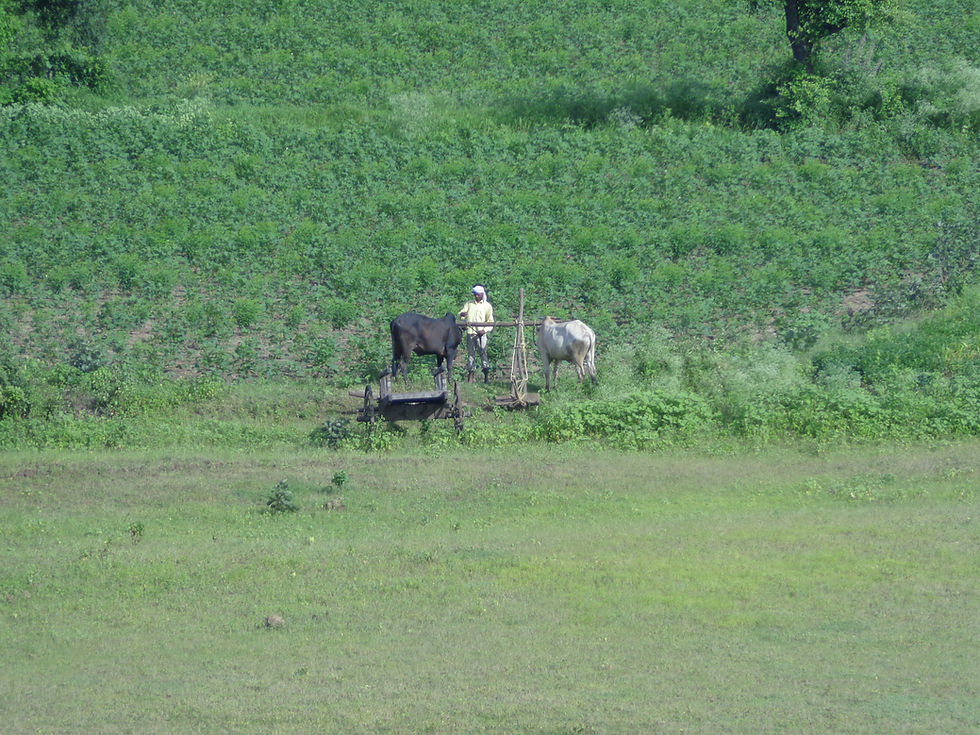Life in Umarkhed
- Sumeeta Gawande & Nicole Civita
- May 19, 2020
- 2 min read
Updated: Dec 19, 2020
As the sun sends its first ray of light through the Umarkhed night sky, parrots caw, Hindu temple bells clang, & prayers from the mosque call out. A villager emerges from a small mud house to collect water from the nearby well - if it hasn’t run dry. Milk is squeezed from the family’s water buffalo - if she hasn’t been sold. If both water & milk are in hand, they are poured into a small pot & simmered with cardamom, tea powder & cane sugar. This is a brew of comfort & awakening.

In the few households with sufficient means, food preparation for the day begins. Rotis (flatbreads) are served with homegrown leafy greens, long beans, or gourds sautéed with peanuts, sesame, and coconut, and paired with spiced pigeon peas or desi chickpeas, rice, and fresh yogurt. But such balance and abundance is the exception, not the rule. For too many villagers, a meager ration of either wheat, millet, or sorghum is rolled into two dry rotis - the day’s entire sustenance. Satisfied or wanting, the work of daily life calls.
The road to Umarkhed is busy: colorful, honking trucks piled high with cotton lumber alongside bullock carts steered by sun-aged men draped in white cloth. Beeping motorcycles, loaded with up to 5 people each, dart between. Women adorned in colorful saris stride confidently with pots balanced atop their heads. Herds of goats & water buffalo join the fray. All journey through gently sloping hills squared off with fields in which farmers toil for soybeans, cotton, chickpeas, turmeric, and sugarcane -- some irrigated fields gleam green, others are yellowed and sparse. In this tropical, dry climate, December temperatures dip to a surprisingly chilly 50sF, but rise to 80sF by day. Temperatures rise with each month, routinely exceeding 100 F by June. The hot sun scorches until the monsoon comes - if it comes. Then, there are floods.
Whatever the weather, love abounds. Families & neighbors squeeze together to share life’s milestones: celebrating a daughter’s return from her marital home to nurture a newborn with her mother’s help; listening eagerly to a revered guest’s stories of life in another town. Blossoms adorn altars & entrances are decorated with colorful powders drawn into interlocking peacocks & flowers to mark happy occasions. Gifts, sweets, local trinkets, hand-drawn pictures, hand-stitched clothes, or cards with caring, uplifting messages are lovingly exchanged. Yet, closeness is not only for exalted times. Friends squeeze onto one scooter to get to school, aid each other’s studies & combine food into a shared lunch eaten from a single plate. This intimacy enables many people of Umarkhed to endure the myriad challenges they face. And so, even when life is cut short because another among them has succumbed to the unrelenting stresses of eking out a livelihood from an unforgiving land, they come together to mourn & to make tea at the start of a new day.



Comments